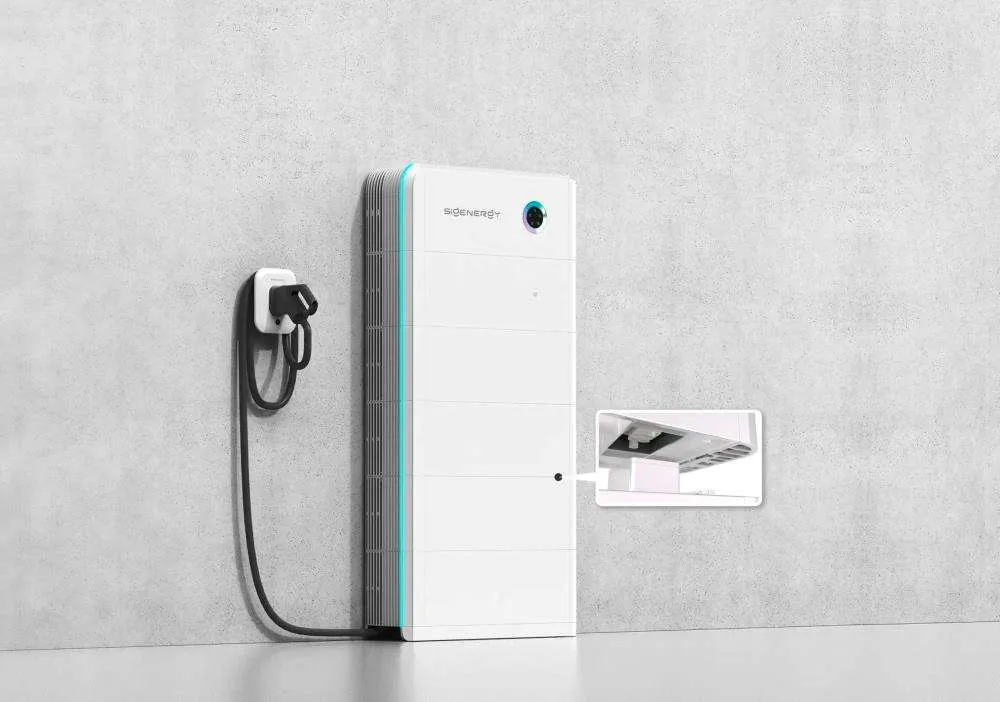Estimated reading time: 5 mins
Sustainability in Singapore goes beyond a national agenda; it has become a personal commitment for many homeowners.
With the rising awareness of climate change and the desire for energy independence, more households are turning to renewable energy sources like solar power. One pivotal aspect of this shift is the implementation of the Net Energy Rebate scheme (NER) managed by the Energy Market Authority (EMA) tailored specifically for residential solar panel installations. In this article, we'll explore how Singapore supports residential homes to install solar panels through its NER incentive and the benefits it offers to homeowners and the environment.
Embracing Incentives for Residential Solar Panels
Singapore's Energy Market Authority (EMA) spearheads the NER scheme for residential solar installations, aiming to encourage homeowners to install solar panels, harness solar energy and contribute to the nation's sustainability efforts. Here's how the residential solar NER incentive works:
Export Tariff Rate:
Homeowners who install solar panels are offered a tariff rate for the excess electricity they export to the grid. Depending on whether you are a "contestable consumer" (which means that you purchase your electricity from an independent retailer other than SP) or a "non-contestable consumer"(you purchase your electricity from SP), this tariff is different. For non-contestable consumers, your solar energy exports will be paid at roughly 75% of the electricity price (electricity tariff rate minus grid charges). For contestable consumers, the solar export tariff rate is based on the Uniform Singapore Energy Price (USEP). For more information, see https://www.ema.gov.sg/consumer-information/solar/solar-installation-guide.
Application Process:
Homeowners interested in benefiting from the residential solar NER scheme must go through an application process.
For non-contestable consumers (SP customers), you will need to register with SP Services under the Simplified Credit Treatment Scheme (https://www.spgroup.com.sg/dam/jcr:1f5c9127-6b01-4854-a08f-6224a7d55059/Application%20for%20Net%20Export%20Rebate.pdf). You can send this form directly to SP but it is best to submit it via a Licensed Electrical Worker (LEW), who will be also uploading documentation such as system specifications and obtaining approval before connecting the solar PV system to the grid. For more information, please see: https://www.spgroup.com.sg/dam/jcr:f9c85889-9b43-4312-a3fc-5a5bcc55aaa6/Solar%20Power%20–%20Residential%20Consumers.pdf
For contestable consumers (independent retailers' customers), you will need to register with SP Services under the Enhanced Central Intermediary Scheme(ECIS) to sell your excess solar generated electricity. The overall process is the same as for the non-contestable consumers, with the exception that there is also a Meter Option Change (MOC) requirement. MOC is done in order to be able to monitor the excess energy from solar panels flowing to the Singapore grid.
Benefits of Residential Solar NER program in Singapore
The implementation of the NER for residential solar panels in Singapore have definitely helped the growth of the local residential solar panel market in the past couple of years. Currently, roughly 300 landed properties are going solar every month in Singapore.
The benefits are numerous:
Financial Savings:
By generating their own electricity through solar panels and receiving payments for excess energy exported to the grid, homeowners can reduce their electricity bills and potentially earn additional income through the NER scheme, enhancing their household finances.
Energy Independence: Residential solar installations empower Singaporean homeowners to become more self-reliant in meeting their energy needs, reducing dependence on traditional utility providers and fossil fuels. For Singapore, this is particularly important because roughly 95% of the Singaporean electricity comes from natural gas. Solar panels, by being the cheapest energy source, enable the move towards energy independence and resilience in the face of fluctuating energy prices and supply disruptions.
Environmental Impact:
Switching to solar power significantly reduces carbon emissions and environmental footprint, contributing to Singapore's efforts to combat climate change and achieve sustainability goals. Residential solar installations help mitigate air pollution and preserve natural resources for future generations. The last decade (2014-2023) has been the warmest decade on record in Singapore, according to the National Environment Agency (https://www.nea.gov.sg/media/news/news/index/2023-is-singapore-s-fourth-warmest-year-on-record).
Singapore's residential NER incentive paves the way for homeowners to embrace clean and sustainable energy solutions while reaping financial and environmental benefits. By providing a supportive framework and financial incentives for residential solar installations, Singapore encourages households to play an active role in the transition towards renewable energy. As more homeowners harness the power of solar energy, Singapore moves closer to its vision of a low-carbon future, driven by empowered individuals committed to sustainability and environmental stewardship.
FAQs Related to Solar Schemes in Singapore
Solar Panel Subsidies and Grants
Q: Are there any government subsidies or grants available for solar panel installations in Singapore?
A: While there aren't direct subsidies or grants available for solar panel installations, Singapore offers the Net Energy Rebate (NER) scheme. This scheme allows homeowners to sell excess solar-generated electricity back to the grid at a premium rate.
Q: How does the Net Energy Rebate (NER) scheme work?
A: The NER scheme provides a tariff for excess electricity exported to the grid, which can help offset the cost of your solar panel installation. The exact rate depends on whether you're a contestable consumer (purchasing electricity from an independent retailer) or a non-contestable consumer (purchasing electricity from SP).
Simplified Credit Treatment Scheme
Q: What is the Simplified Credit Treatment Scheme (SCT)?
A: The SCT is a scheme designed to simplify the process for non-contestable consumers (SP customers) to participate in the NER scheme. It allows for easier registration and approval for solar panel installations.
Q: How do I apply for the SCT?
A: You can apply for the SCT by submitting the necessary forms to SP Services. It's recommended to do this through a Licensed Electrical Worker (LEW) for faster processing.
Solar Panel Installation Schemes
Q: Are there any specific government schemes for solar panel installations in Singapore?
A: While there aren't dedicated schemes for solar panel installations, the NER scheme and the SCT provide significant support for homeowners considering solar energy.
Q: What are the benefits of installing solar panels in Singapore?
A: Installing solar panels can offer numerous benefits, including:
- Financial savings: Reduced electricity bills and potential income from the NER scheme.
- Energy independence: Less reliance on traditional electricity providers.
- Environmental benefits: Reduced carbon emissions and contribution to sustainability goals.
Q: Can I install solar panels if I'm a tenant in an apartment building?
A: Typically, installing solar panels on apartment buildings is more complex. It may require approval from the building management and potentially involve shared benefits among residents. However, some apartment complexes may offer communal solar installations.
Sources:
https://www.spgroup.com.sg/sustainable-energy-solutions/renewable-energy
https://www.nea.gov.sg
https://www.ema.gov.sg/consumer-information/solar


















